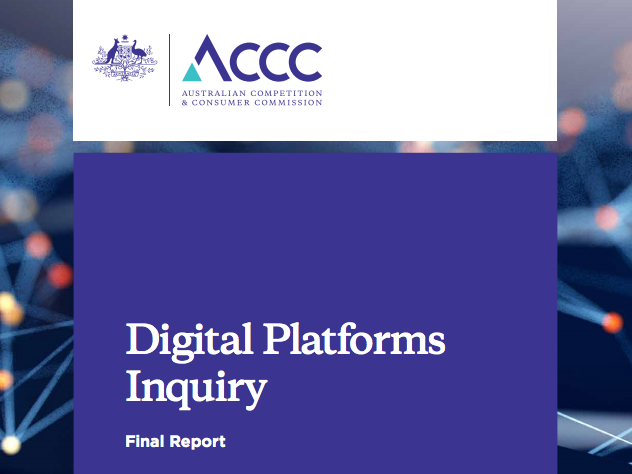ACCC recommends mass reforms as a result of digital platform inquiry with Google and Facebook in the crosshairs
The Australian Competition and Consumer Commission (ACCC) has made 23 recommendations for the federal government in an attempt to desperately curb the dominance of Facebook and Google in Australia. The final report from the consumer watchdog’s Digital Platforms Inquiry paints a bleak picture about the future of journalism and publishing if the recommendations are not followed.
The wide-reaching 600+ page report covers everything from competition law, consumer protection, media regulation and privacy law, to a reflection on the intersection of issues arising from the growth of digital platforms.



I would’ve thought the potential game-changer is the “platform-neutral regulatory framework”. Traditional media should be all over this trying to get Google and FB and others to adhere to the same advertising and broadcast rules as they do.